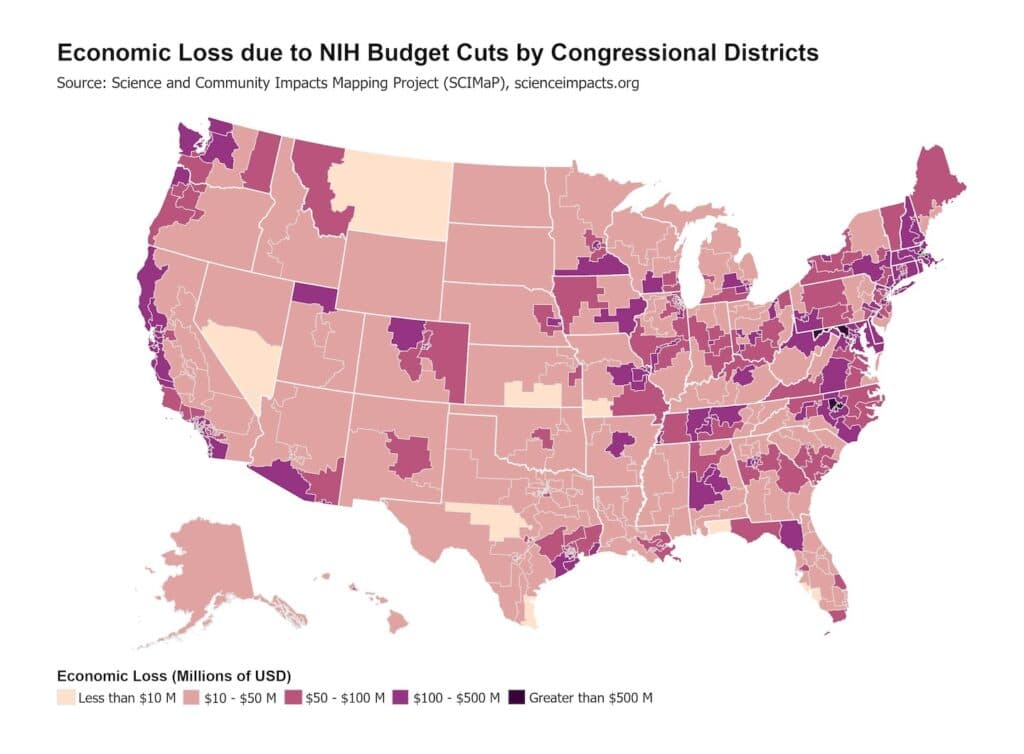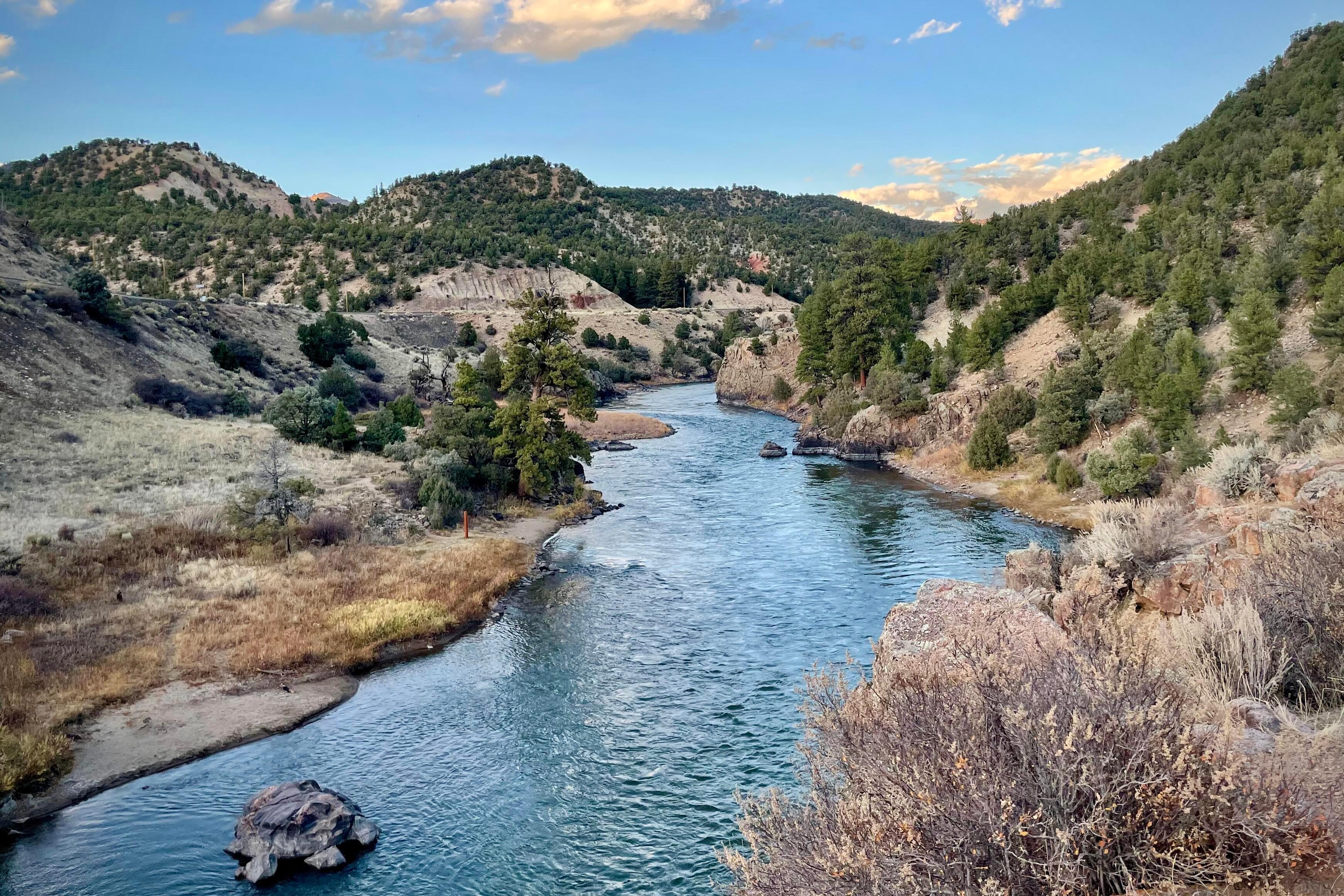
This story was originally published by Chalkbeat. Sign up for their newsletters at ckbe.at/newsletters
By Jason Gonzales, Chalkbeat
Federally funded research grants have paved the way to life-saving treatments and contribute millions to local economies.
But, according to a new study, the 2026 Trump administration budget cuts could halt that research, result in job losses, and hurt the economy in every U.S. congressional district.
These estimates from the Science and Community Impacts Mapping Project say slashing National Institutes of Health grants, which are just 1% of the federal budget, by $18 billion within Trump’s “big, beautiful bill” would result in $46 billion in lost economic revenue and over 200,000 jobs lost nationwide.
The mapping project researchers compared active grants within the 2020-24 budget years to the projected 2026 budget changes.

In Colorado, budget cuts are estimated to amount to $657 million in economic losses and 2,800 jobs in the state’s eight congressional districts. Much of this research is conducted by universities across the state, with the University of Colorado Anschutz Medical Campus expected to lose the most funding.
Advocates for the grants have said that federally funded scientific and medical research improves public health, helps spur innovation, creates jobs, and boosts the economy.
The report says the White House budget cuts research to life-saving diagnostics, therapeutics, and potential cures. That includes a 39% cut to the National Cancer Institute, a 38% cut to the National Institute of Allergy and Infectious Diseases, and a 42% cut to the National Institute on Aging.
The report adds that NIH grants “contributed to more than 99% of the 300-plus drugs approved by the FDA from 2010-2019, including drugs to treat metastatic breast cancer, reduce birth defects caused by viruses, and novel antibiotics to treat multidrug resistant ‘superbugs.’”
Higher ed stories from Chalkbeat
Colorado created two programs to get adults back to college. One worked far better than the other. — A Colorado program gives former college students recognition for their time and money. But, so far, students aren’t returning to finish a four-year degree.
Colorado attorney general committed to defending in-state tuition program for undocumented students — Colorado public officials said its in-state tuition program for undocumented students is on firm legal ground.
What to know about the Trump budget bill’s impact on schools that serve students of color — The Trump budget and lawsuits are causing uncertainty for schools that serve a higher percentage of students of color.
Fewer Colorado students are graduating with debt, new report shows — The annual report seeks to show the value of a college education in Colorado.
More out-of-state CSU Pueblo students will pay the same as Colorado graduates starting this fall — The school joins a growing number of regional universities wanting to become more competitive in enrolling out-of-state students.
Jared Polis and governors association release plan to improve education and workforce outcomes — Gov. Jared Polis and the National Governors Association released a blueprint they hope will help state leaders strengthen student learning and the economy.
What we’re reading
What’s Working: Adams State University and its offspring fuel the San Luis Valley Colorado Sun
CU’s chancellor says ‘lots of little things’ keep students coming to Boulder CPR
Trump wants universities to show him the money, or no deal New York Times
Chipotle launches rewards program for college students. Here’s what you can get. USA Today
Jason Gonzales is a reporter covering higher education and the Colorado legislature. Chalkbeat Colorado partners with Open Campus on higher education coverage. Contact Jason at [email protected].









